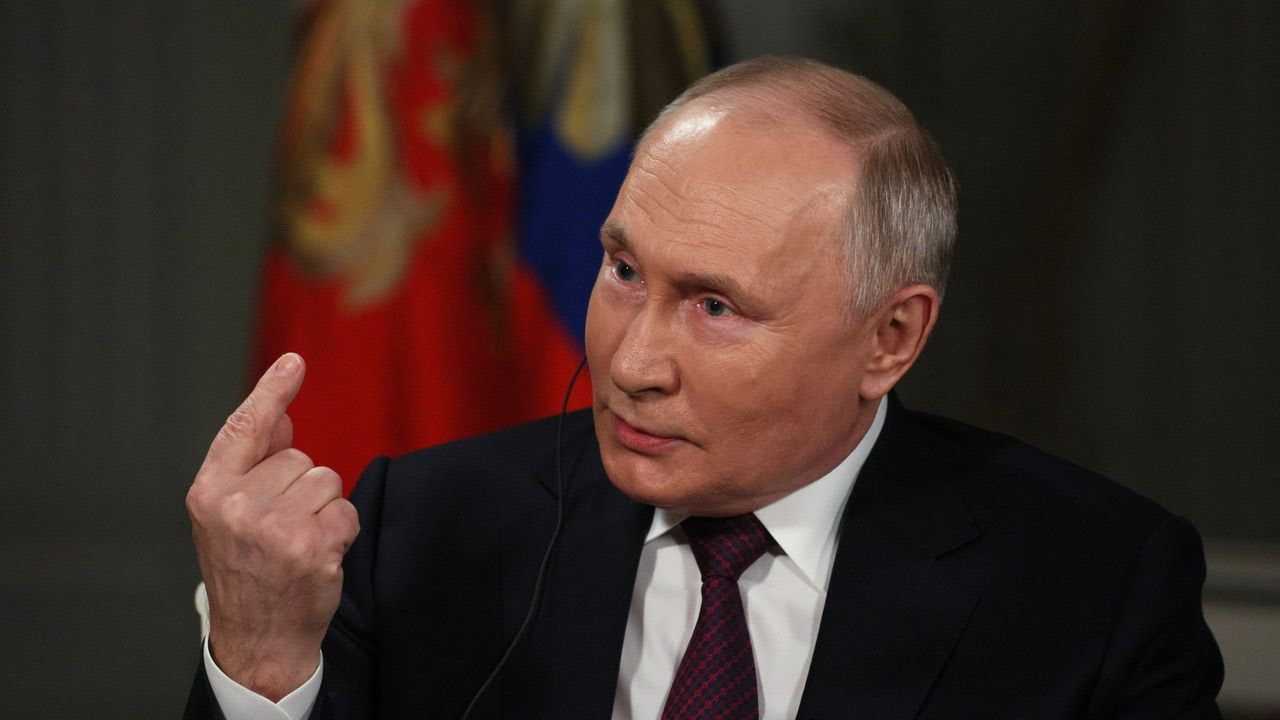Putin’s first interview with a Western journalist since Ukraine invasion
Vladimir Putin.
"This is how democracies die." As television reviews go, it was pretty damning. But EU lawmaker Guy Verhofstadt's assessment does speak to the significance of the Russian president's first interview with a Western journalist since his country invaded Ukraine two years ago. Tucker Carlson's interview did give some clues about the plans of Vladimir Putin.
For the first time since Russia invaded Ukraine two years ago, Vladimir Putin has been interviewed by a Western journalist, offering a rare window into the mindset of a reclusive pariah reports The Week.
The occasion provoked a furor of interest and criticism, largely focused on who conducted the interview: the controversial ex-Fox News anchor Tucker Carlson.
But from the "two-hour, hotly anticipated interview", filmed in Moscow and published on "the far-right commentator's website" on Thursday, "nuggets of Putin-think emerged", said Politico.
Putin "agreed to this chat from a position of relative strength", said the BBC's Eastern Europe correspondent Sarah Rainsford.
Kyiv's Western allies have been "dithering over continued military aid, especially the US", while Ukraine's President Zelenskyy has sacked his popular commander-in-chief of the armed forces. "The situation is precarious." That could explain why Putin – who "lectured, joked and occasionally snarled" – was "fully in charge of this encounter", said Rainsford.
To Carlson's obvious bemusement, Putin began the interview by delivering a 30-minute "romp" through "counterfactual history", said The Daily Telegraph's deputy US editor, Rozina Sabur. When Putin eventually finished, he warned that Russian defeat in Ukraine was "impossible by definition", but remained defiant that he did not seek to expand the war into Poland and Latvia.
There was "plenty of swagger" from Putin about how Russia is "ready for dialogue" and "willing to negotiate" on Ukraine, said the BBC's Rainsford.
Putin insisted "relations between the two peoples will be rebuilt" and "even seemed to hold open the possibility that Zelenskyy could decide to be a partner in peace negotiations", said the FT's Gideon Rachman. But he also added that Moscow had not yet achieved its purported invasion goals, including the "de-Nazification" of Ukraine.
That claim "is widely seen as code for the removal of the country’s (Jewish) president", said Politico. But the main point Putin sought to convey was "there’s no point helping Ukraine with more money and weapons", added the website. In Carlson, he found an interviewer who was "all too happy to help deliver that message"
